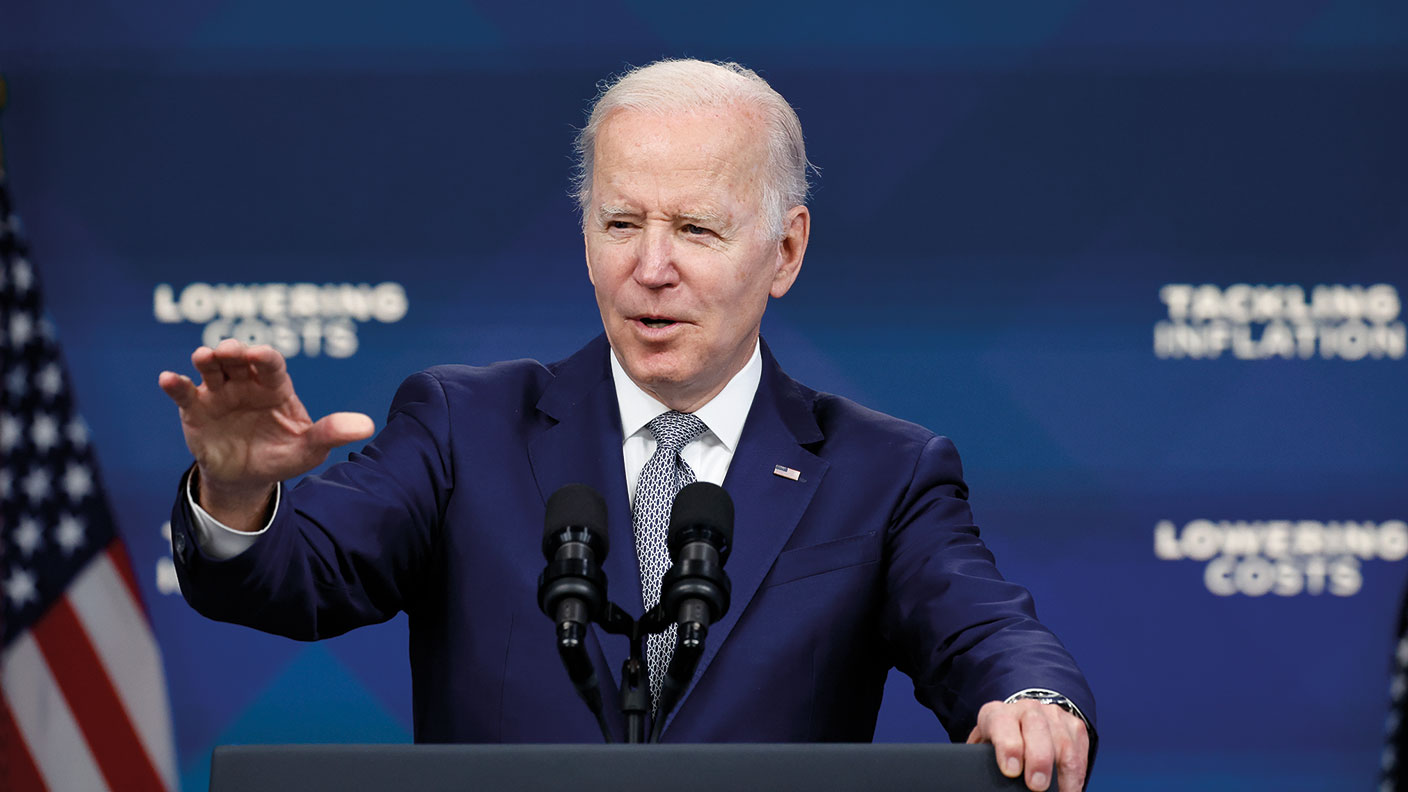This bull market can go on for a bit longer
All bull markets always go on longer than anyone rational thinks they should. This one is no exception, says Merryn Somerset Webb.

Get the latest financial news, insights and expert analysis from our award-winning MoneyWeek team, to help you understand what really matters when it comes to your finances.
You are now subscribed
Your newsletter sign-up was successful
Want to add more newsletters?

Twice daily
MoneyWeek
Get the latest financial news, insights and expert analysis from our award-winning MoneyWeek team, to help you understand what really matters when it comes to your finances.

Four times a week
Look After My Bills
Sign up to our free money-saving newsletter, filled with the latest news and expert advice to help you find the best tips and deals for managing your bills. Start saving today!
Here is a list of things we are pretty sure of. Valuations of almost all assets are expensive by historical standards. The shrinking of central-bank balance sheets matters: if quantitative easing (QE) pushed markets up, quantitative tightening (QT) will surely bring them down. Full employment will eventually lead to inflation. Peak social media something that, alongside Trump's hostility to the likes of Google, has to have implications for the stock prices of the tech darlings is almost upon us. And markets can't ignore politics forever: unrest in Italy, Sweden and Germany matters.
Here is another list of things we are also fairly sure of. You can ignore politics for a very long time: as Adam Smith noted, it takes "a great deal of ruin" to damage the systems of a secure nation. Some valuations are actually cheaper than they were a few years back (rising profits in the US have meant falling p/e ratios). One should be careful of predicting disaster more often than absolutely necessary. Inflation doesn't necessarily bother bull markets until it hits 4%-plus. And finally, all bull markets always go on longer than anyone rational thinks they should.
Add all that up and what do you get? In our cover story, Matthew Partridge looks at the US economy and stockmarket with a view to answering that very question. His answer (in a nutshell): a bull market that can go on for a bit longer. I asked Andrew Milligan, chief strategist at Aberdeen Standard Life, the same question when he kindly appeared on MoneyWeek's (sold out!) Edinburgh Fringe show at Adam Smith's newly refurbished Edinburgh residence, Panmure House, last week (Smith died there in 1790). His answer was similar. All bull markets are more or less the same, he said. Investing legend John Templeton divided their progress into four stages. They are, as all regular MoneyWeek readers will know by now, "born on pessimism, grown on scepticism, mature on optimism, and die on euphoria". The key to success is just to figure out where you are in the cycle and there is a strong chance we aren't much out of the second stage. Euphoria (or "melt up") is therefore likely to be on the way. Hooray (assuming he is right).
MoneyWeek
Subscribe to MoneyWeek today and get your first six magazine issues absolutely FREE

Sign up to Money Morning
Don't miss the latest investment and personal finances news, market analysis, plus money-saving tips with our free twice-daily newsletter
Don't miss the latest investment and personal finances news, market analysis, plus money-saving tips with our free twice-daily newsletter
Matthew suggests mitigating some of the risk in assuming the best is yet to come by moving into value stocks and, in particular, into Japan. I'm with him on this and in particular am with him on the value bit (these are the stocks that gained least from QE so are least likely to be hurt by QT). But I would like to add one investment trust suggestion of my own to the mix. The British Empire Trust, run by Joe Bauernfreund, focuses on investing in companies where share prices stand at a discount to their estimated underlying net asset value. Around 20% of the portfolio is also currently in Japan. How's that for two birds with one stone?
Get the latest financial news, insights and expert analysis from our award-winning MoneyWeek team, to help you understand what really matters when it comes to your finances.

-
 Early signs of the AI apocalypse?
Early signs of the AI apocalypse?Uncertainty is rife as investors question what the impact of AI will be.
-
 Reach for the stars to boost Britain's space industry
Reach for the stars to boost Britain's space industryopinion We can’t afford to neglect Britain's space industry. Unfortunately, the government is taking completely the wrong approach, says Matthew Lynn
-
 What to do as the age of cheap money and overpriced equities ends
What to do as the age of cheap money and overpriced equities endsEditor's letter The age of cheap money, overpriced equities and negative interest rates is over. The great bond bull market is over. All this means you will be losing money, says Merryn Somerset Webb. What can you do to protect yourself?
-
 Investors are bullish – but be very careful
Investors are bullish – but be very carefulEditor's letter Many investors are buying the dip, convinced the latest upswing is the start of a new bull market. The odds are that it’s not, says Andrew Van Sickle. The bear has unfinished business.
-
The MoneyWeek approach to investing
Editor's letter At MoneyWeek, our aim is simple: to give you intelligent and enjoyable commentary on the most important financial stories, and tell you how to profit from them. So how do we do that?
-
 Celebrity bitcoin ads echo the subprime mortgage crisis
Celebrity bitcoin ads echo the subprime mortgage crisisEditor's letter A wave of ads featuring celebrities punting crypto to the masses are reminiscent of how low income Americans were encouraged to take on loans they couldn’t afford, says Merryn Somerset Webb.
-
 Will the UK's property slowdown turn into a house-price crash?
Will the UK's property slowdown turn into a house-price crash?Editor's letter As the cost-of-living crisis intensifies and interest rate rise, it is hard to see reasons for UK house prices to keep rising, says Merryn Somerset Webb.
-
 The unintended consequences of ESG investing
The unintended consequences of ESG investingEditor's letter Many people are refusing to invest in energy companies, citing "ESG" concerns. But we still need fossil fuels, says Merryn Somerset Webb, and will for years to come. Boycotting the sector is a bad idea.
-
 What sardines can teach investors about today's markets
What sardines can teach investors about today's marketsEditor's letter A California tale of “eating sardines” and “trading sardines” can help us divide investments into speculative and real, says Merryn Somerset Webb. Something that's very useful when looking at today’s markets.
-
 The market finally seems to be getting it
The market finally seems to be getting itEditor's letter Reality checks are coming fast to the markets, says Merryn Somerset Webb – with even 2022’s safe havens beginning to reflect recession worries.